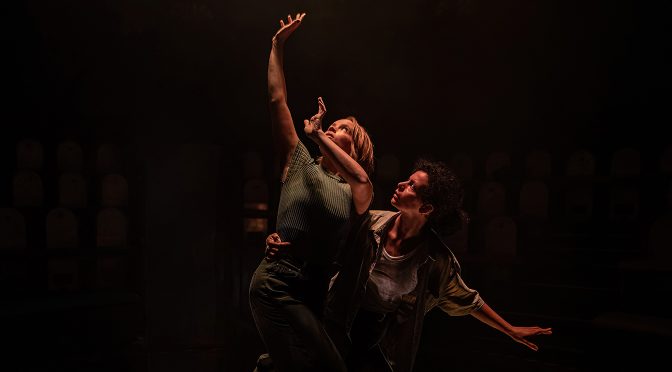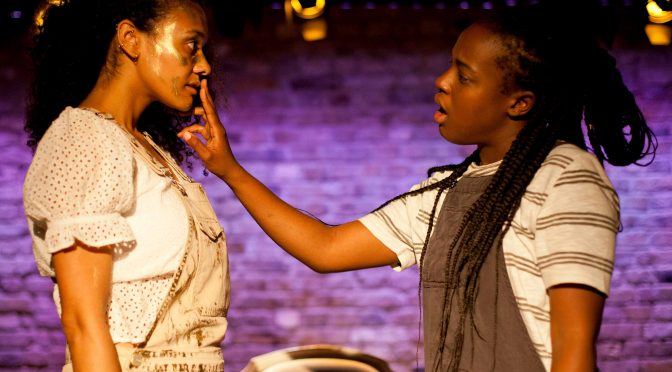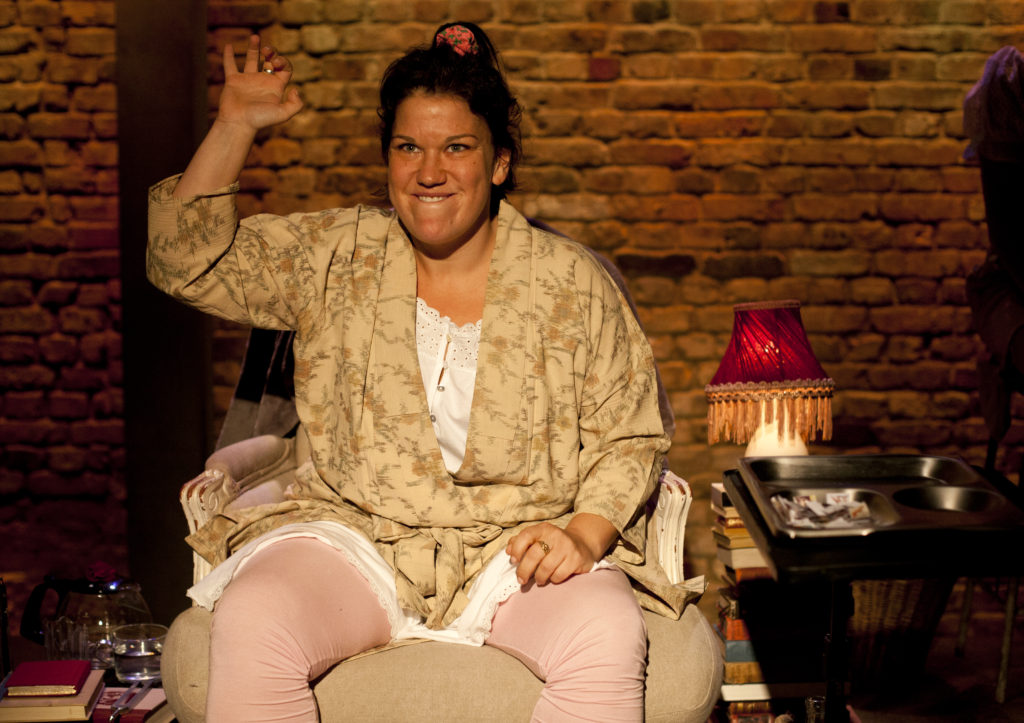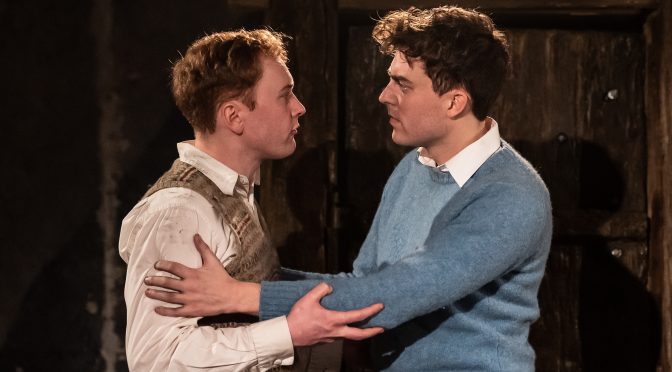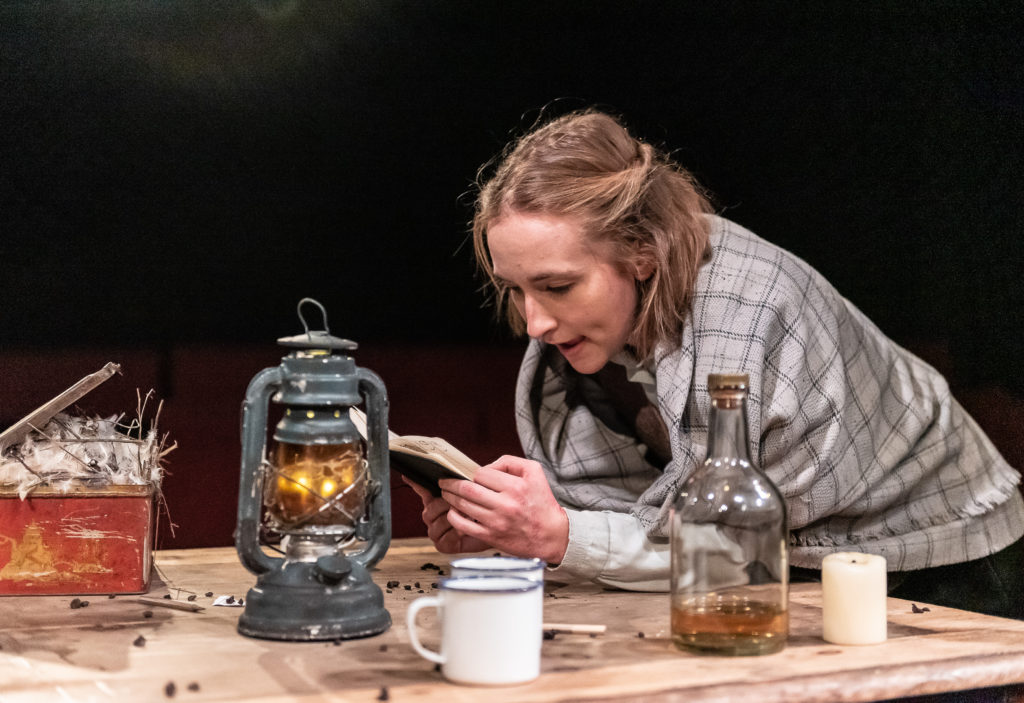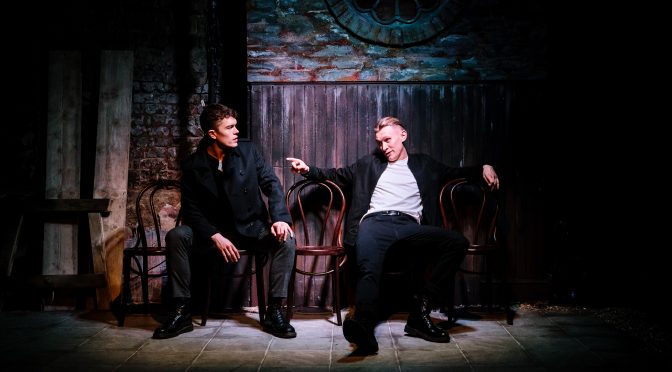This fringe hit is a remarkably accomplished play from Rafaella Marcus. As a debut, it’s tempting to be inspired by its botanical references and write that there’s potential for growth. But, in truth, Sap is a show in full bloom that easily deserves five-star status.
Beginning with strong comedy that endears its central character, Daphne, to an audience, a gripping plot and intelligent script places mythology in the modern world to examine attitudes towards bisexuality and the effects of sexual violence.
The observational jokes that start the show are strong, with work life and Daphne’s sexuality creating complicity with the audience. Direct addresses prove to be one of the many highlights of Jessica Lazar’s superb direction. There is an undertone of what’s to come – Daphne is sensitive and stressed, a frank overthinker who shares too much – conveyed brilliantly in Jessica Clark’s stunning performance in the role.
It’s always impressive when a playwright changes the mood of their work, but let’s not forget that it’s hard. Marcus moves the tone of Sap with a skill that seems effortless. The plot twist in the play made the whole audience groan on the night I saw it – a fantastic moment of theatre. And what comes after the unusual twist is deeply disturbing, as well as original.
Clark is joined by Rebecca Banatvala, who plays several other characters and provides sterling support. Banatvala is especially good as the play’s male antagonist – a lawyer “spat out” of a cloistered quadrangle (what a phrase! You just know him, don’t you?). The script is marvellous, full of vivid imagery and ideas without being overpowering, and not a word could be pruned. Poetry and myth are used sparingly and to great effect.
The physical reaction to Daphne’s anxiety and a series of attacks that she suffers recalls the metamorphosis of her namesake – she feels bark enclosing her body, trapping but also protecting her. It’s a brilliant idea that is enhanced by Lazar’s use of movement. Just as impressive, the conceit isn’t overused – the idea builds powerfully and culminates in a scene that is another theatrical highlight, however harrowing.
The problem of depicting violence towards women is handled with innovation and intelligent. There is a strong sense that Daphne’s insecurities, as well as the biphobia she is subjected too, have created a woman who feels unworthy of the love offered to her. In fact, despite her faults, we can see that she is a “glorious” character – her girlfriend is right when she calls her this, and glorious is a word that can be applied to whole show.
Until 22 April 2023
Photo by David Monteith-Hodge

